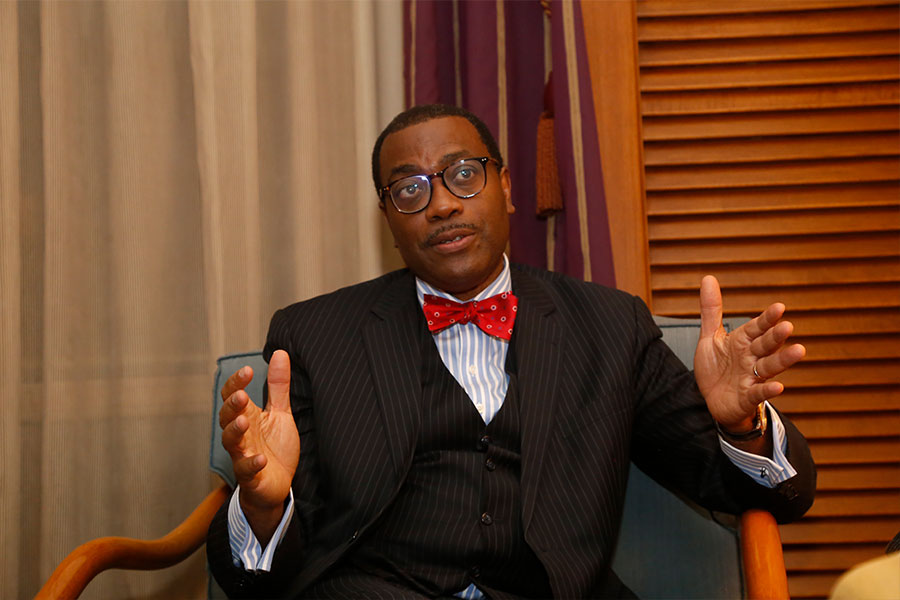
Exclusive Interviews | Feb 12,2022
Jan 14 , 2023
By Annalena Baerbock
As we enter the new year, a devastating war rages on the European continent. Russia’s war of aggression has slashed a devastating wound far beyond Europe, exacerbating a food and energy crisis in large parts of Africa, the Middle East, and Asia. More than 800 million men, women, and children go to bed hungry every night. The climate emergency deepens this pain, stirring conflict worldwide and robbing people of their land, homes, and security.
How can we be optimistic in such frightful times of uncertainty?
I strongly believe that, as responsible world leaders, we have no other option than to face the following year with a firm sense of confidence that we can drive change to improve people’s lives. Not despite this "perfect storm" of crises – but because of it.
Nelson Mandela once described the moments when his faith in humanity was tested, but still he would not give in to despair.
“Part of being optimistic is keeping one’s head pointed toward the sun, one’s feet moving forward” – that was how he put it.
To look ahead and stay the course, confident in what we are able to achieve if we stand together – that is, to my mind, what should guide us into the new year. And I am not saying this from a position of naive hopefulness. I am saying this with the confidence of a Foreign Minister who has learned in many – often difficult – instances over the past 12 months how much we can achieve if we let solidarity and humanity guide our actions and if we defend what we believe in.
That is exactly how we responded to Russia’s war of aggression against Ukraine – united, in Europe, across the Atlantic, and worldwide – with our clear stand against the war’s inhumanities, with our support for Ukraine, with sanctions aimed at Russia’s war machine, and with investments in our security.
That outstanding unity was not a given. More than 140 states spoke out against Russia’s aggression at the United Nations General Assembly in March – from north to south, from east to west – all different in our histories, politics, and cultures. What unites us is a common cause – to do what our citizens expect from us: to make it unwaveringly clear that, in situations of injustice, we will not be neutral. We will take sides – for justice for the woman raped in Bucha, for the orchestra conductor shot in Kherson, and for the toddler forced from his home in eastern Ukraine.
Because we could be them, and they could be us. And because, if we were to let this war of aggression pass by, no one, anywhere, could sleep peacefully while living in fear of being attacked by a bigger neighbor.
Our strength is in our unity. United for humanity – it is this deep conviction that gives me confidence for the year ahead.
For that, we must be better listeners. That is another crucial lesson I have drawn from the past few months – not just with a view to our partners in Europe but also in Africa, Asia, Latin America, and the Near and Middle East.
When discussing Russia’s war with many of these partners, I often heard the following sentiment: “You want us to stand with you now that there is a war in Europe. But where were you in recent years when we were in the throes of conflict?”
I hear these concerns. And I truly believe we should be willing to critically question our own actions and our past engagement in the world. We should also listen closely when our partners tell us how difficult it is to reduce their dependency on Russia – whether militarily, politically, or economically. This is an immense challenge. In Germany, we are seeing how the cost of overcoming our dependency is weighing on our citizens’ wallets. For many partners, the slashes cut deeper, and, for them, setting up multi-billion-euro protective shields is simply not possible.
Our partners must know that they can rely on us. A Foreign Minister colleague recently said to me, “We need committed partners, not partners who just want to please us.” This should be our guiding principle.
Our clear message is that we are not turning our back on the world because there is a war raging in our neighbourhood. On the contrary, we are seeing how this very war is driving suffering across the globe because Russia has been curbing access to Ukraine’s grain exports and has been spreading lies about who is to blame for the shortages.
Our response has been the most effective when it has been the most united. It was the UN, together with our Turkish partners, that negotiated the reopening of Ukrainian grain ports. The G7, which brings together economically strong democracies, committed over 14 billion dollars by June 2022 to help alleviate the pain of those most in need; and Germany remains the second largest humanitarian donor worldwide. This solidarity gives me confidence. But it is not enough.
The World Food Programme had to reduce food rations to Yemen, Somalia, and the Sahel. Every portion cut means another child goes hungry. And seeing sons or daughters starving, the fight for democracy, rights, or freedom becomes impossible. That is why, going into the next year, we must not waver in our joint support.
At the same time, we will rally partners to tackle one of the most severe underlying causes of the food crisis: the climate emergency.
For millions around the world, this crisis is a concrete threat to their lives. I heard from women in northern Mali how droughts are destroying their harvests, driving farmers from their homes, and exacerbating conflicts over land and resources. In Palau, a fisherman took me to his local beach, showing me how the rising sea levels may swallow up his house in less than 10 years, robbing him of his home, his safety, and his livelihood.
At the UN Climate Change Conference (COP27), I met an activist from Chad who told me, “While we are talking, my country is under water, my mother has lost her home, my sister has lost her home, my cousins have lost their homes.”
The climate crisis harms, kills, and displaces. It is a direct threat to human life. It is a blatant injustice that countries like Chad and Palau suffer so tremendously from this crisis while having contributed next to nothing to its creation.
As industrialized countries that are largely to blame for the crisis, we have a special responsibility to help alleviate it, to reduce emissions and keep the 1.5° Celsius path within reach. Because every tenth of a degree less in global warming means less intense storms, floods, and droughts – and thus more security.
That is why it was a crucial step forward that we opened a new chapter for climate justice at COP27. It is now on the big emitters to pay their share for the climate losses and damages they are causing in the most vulnerable states. This is not about charity; it is about justice. It is something particularly small island states have been demanding for decades – and rightly so. This year, we finally sent a clear message: We heard you. We understood. And now, we will act.
In the climate emergency, as well as in other conflicts and crises, it is the most vulnerable who suffer the most: women, children, the elderly, and marginalized groups. I strongly believe that women’s rights are a yardstick for the state of our societies. In autocratic regimes, they are often the first to give. And if they do, that is a sign of worse to come. What autocratic regimes are most afraid of is when women raise their voices.
If half of the population is suppressed, no society or economy can thrive. That is why, for my government, a Feminist Foreign Policy that promotes the equal rights of each and every one of us in our societies is a core issue of hard security. It will figure prominently in our National Security Strategy that we are currently drafting.
“Women are the first victims of war, but only they hold the unique key to peace.” That is how Congolese human-rights activist Julienne Lusenge put it.
“Unless women are safe, no one is safe,” courageous women in Ukraine told me.
“Women, life, freedom,” is what the women in Iran have been chanting. Resounding across the world, their chant is an anthem of courage. If I am to take strength for the year 2023, I take it from brave women like them, whether they hail from the Congo, Iran, Afghanistan, or Ukraine.
Their chant is our anthem. Their courage is our yardstick. Their cause is our call – to not only be confident, but to boldly take action, united for humanity.
PUBLISHED ON
Jan 14,2023 [ VOL
23 , NO
1185]


Exclusive Interviews | Feb 12,2022

View From Arada | Nov 05,2022
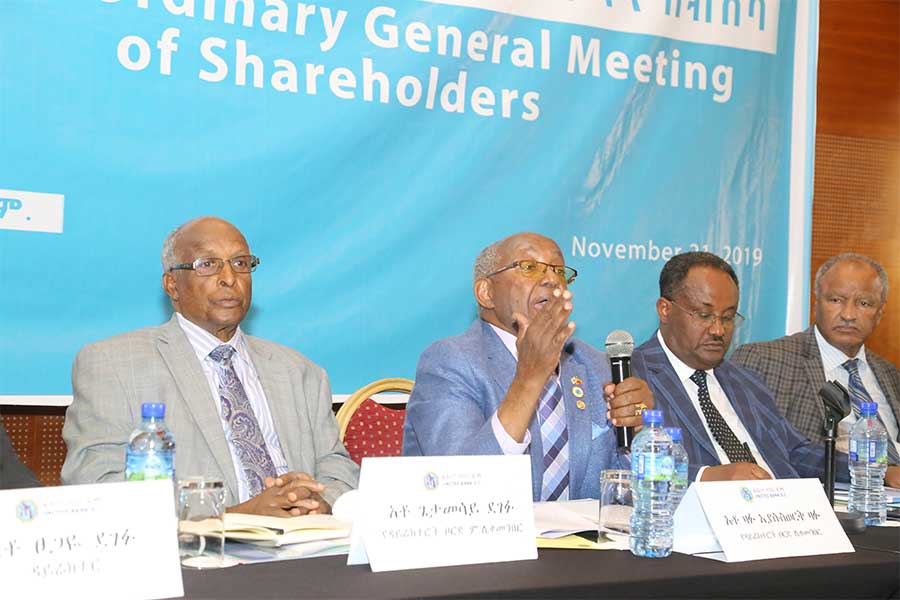
Fortune News | Dec 14,2019
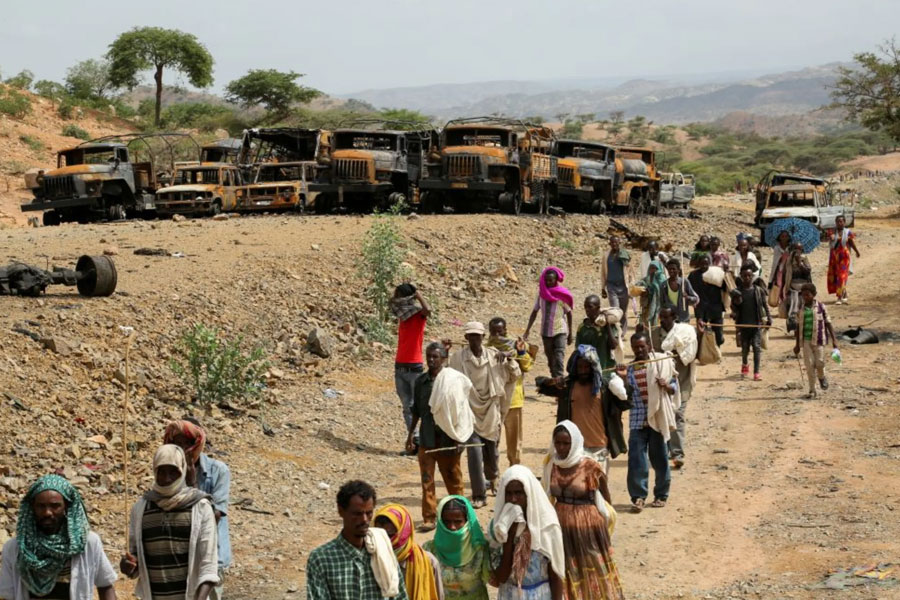
Year In Review | Jan 02,2024

Fortune News | Jan 18,2020

Radar | May 09,2020
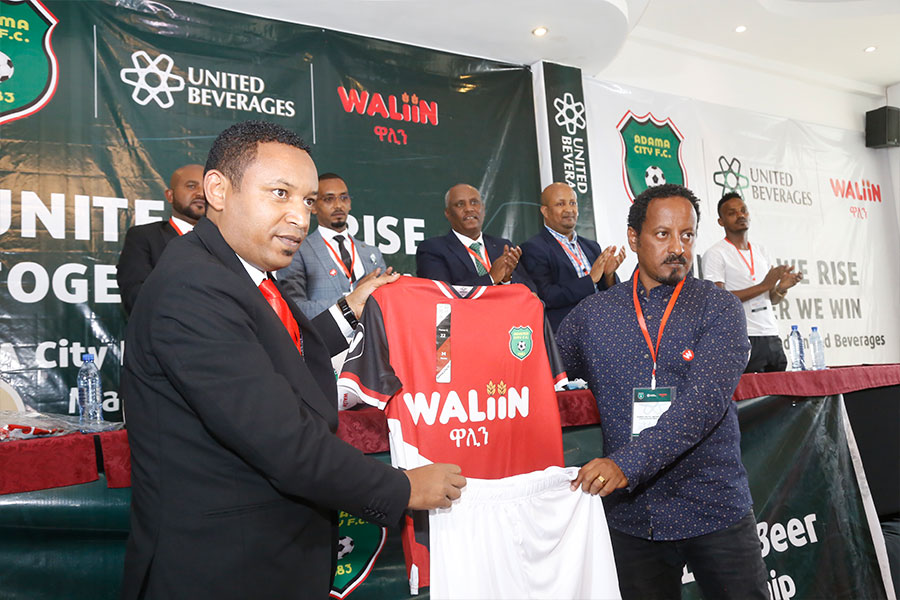
Radar | Mar 26,2022

Advertorials | Oct 02,2023
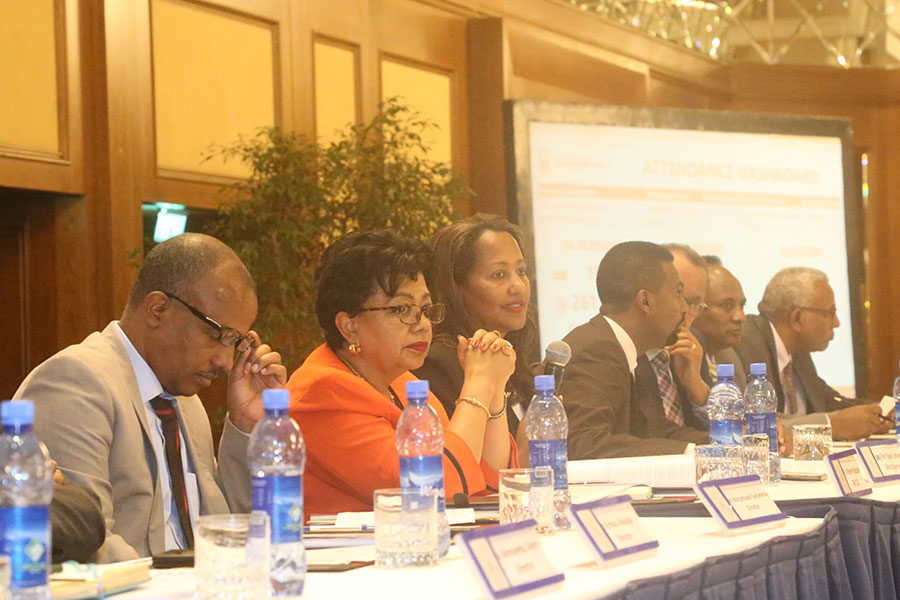
Fortune News | Jan 07,2023
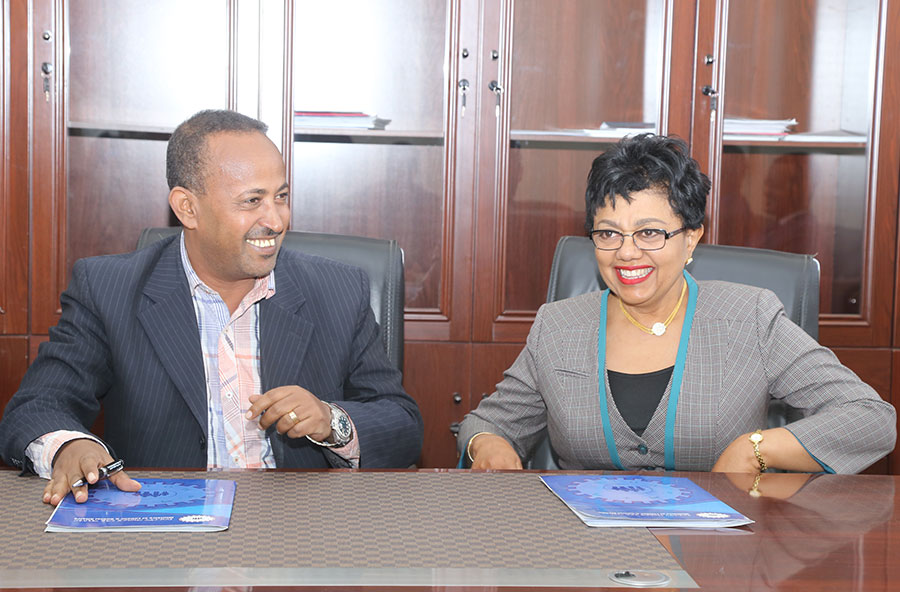
Fortune News | Dec 05,2018

Photo Gallery | 174940 Views | May 06,2019

Photo Gallery | 165165 Views | Apr 26,2019

Photo Gallery | 155429 Views | Oct 06,2021

My Opinion | 136746 Views | Aug 14,2021

Dec 22 , 2024 . By TIZITA SHEWAFERAW
Charged with transforming colossal state-owned enterprises into modern and competitiv...

Aug 18 , 2024 . By AKSAH ITALO
Although predictable Yonas Zerihun's job in the ride-hailing service is not immune to...

Jul 28 , 2024 . By TIZITA SHEWAFERAW
Unhabitual, perhaps too many, Samuel Gebreyohannes, 38, used to occasionally enjoy a couple of beers at breakfast. However, he recently swit...

Jul 13 , 2024 . By AKSAH ITALO
Investors who rely on tractors, trucks, and field vehicles for commuting, transporting commodities, and f...

Oct 18 , 2025
The political establishment, notably the ruling party and its top brass, has become p...

Oct 11 , 2025
Ladislas Farago, a roving Associated Press (AP) correspondent, arrived in Ethiopia in...

Oct 4 , 2025
Eyob Tekalegn (PhD) had been in the Governor's chair for only weeks when, on Septembe...

Sep 27 , 2025
Four years into an experiment with “shock therapy” in education, the national moo...

Oct 18 , 2025 . By NAHOM AYELE
In a sweeping reform that upends nearly a decade of uniform health insurance contribu...

Oct 18 , 2025 . By BEZAWIT HULUAGER
A bill that could transform the nutritional state sits in a limbo, even as the countr...

Oct 18 , 2025 . By SURAFEL MULUGETA
A long-planned directive to curb carbon emissions from fossil-fuel-powered vehicles h...

Oct 18 , 2025 . By BEZAWIT HULUAGER
Transaction advisors working with companies that hold over a quarter of a billion Bir...